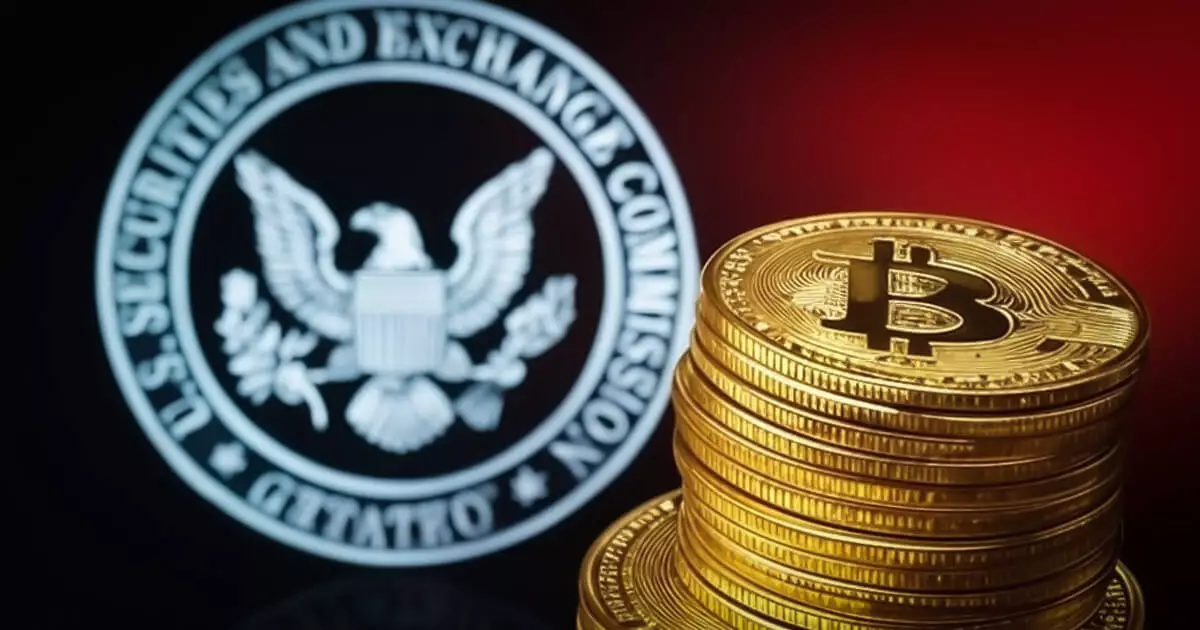On January 21, the U.S. Securities and Exchange Commission (SEC) made a noteworthy announcement: the establishment of a dedicated crypto task force led by Commissioner Hester Peirce. This groundbreaking initiative, articulated by Acting Chairman Mark Uyeda, aims to develop a robust and transparent regulatory framework for the evolving and often tumultuous world of cryptocurrencies. As digital assets rise in prominence, characterized by rapid innovation but also significant uncertainty, such regulatory clarity is not only timely but necessary.
Commissioner Peirce, affectionately nicknamed “Crypto Mom” by advocates of blockchain technology, has long championed the potential of cryptocurrencies and blockchain innovation. Her leadership will be crucial in steering the task force toward an ecosystem where regulatory guidance is harmonized with technological advancements. Joining her are key advisors Richard Gabbert and Taylor Asher, who will support the task force’s operations. This new structure underlines a strategic pivot for the SEC, moving away from its historical enforcement-heavy posture to a more cooperative and constructive regulatory approach.
Historically, the SEC’s response to the crypto space has primarily been reactionary, often manifesting as enforcement actions that many critics argue are muddled and unpredictable. This method has raised concerns regarding its efficacy, with industry participants asserting that such retroactive actions foster an environment that stifles innovation. As a response, the SEC’s newly formed task force is not only tasked with clarifying regulatory thresholds but also with establishing proactive compliance avenues that effectively serve both investors and market participants.
The objective is clear: the task force seeks to forge practical registration processes and disclosure frameworks that mitigate confusion while fostering an environment conducive to innovation. Rather than primarily relying on punitive measures, the SEC under Uyeda is now signaling a desire to engage strategically with industry stakeholders to identify and address regulatory gaps.
Integral to the task force’s strategy is the ethos of collaboration. The SEC aims to engage with various federal agencies, including the Commodity Futures Trading Commission (CFTC), ensuring that U.S. regulation of cryptocurrencies resonates with global standards while addressing the unique complexities of the crypto industry. This collaborative framework is positioned to enhance regulatory coherence amidst a rapidly evolving market landscape.
The task force is also committed to providing technical assistance to Congress, allowing it to adapt and update the statutory framework governing digital assets. As the task force interacts with legislators, it is poised to offer valuable insights into the pressing issues surrounding crypto regulation. Speaking about this endeavor, Commissioner Peirce emphasized the importance of inclusive dialogue, stating that the task force’s success hinges on input from a diverse array of stakeholders, including investors, industry experts, and academics.
Interestingly, the task force is being supported by a broader political movement favoring cryptocurrency. Notably, President Trump’s nominations for the SEC and CFTC have included pro-crypto figures, demonstrating a noteworthy political backing that could influence the regulatory landscape moving forward. These appointments reflect a shift towards a more favorable environment for cryptocurrency innovation, a significant departure from previous policies that have been perceived as overly cautious or restrictive.
The presence of figures like Paul Atkins as SEC chair and David Sacks as the so-called “crypto czar” illustrates a commitment to nurturing the cryptocurrency landscape through robust regulatory engagement rather than through suppression. It showcases an understanding that, for cryptocurrencies to thrive, regulatory frameworks must evolve in parallel with technological advancements.
The SEC’s formation of the crypto task force represents a pivotal transformation in the approach to cryptocurrency regulation, promising a landscape where clarity, collaboration, and innovation can coalesce. As the task force works to build a framework that reflects the dynamic nature of digital assets, its success will depend significantly on stakeholder engagement and political support. The movement towards a more harmonious regulatory approach could ultimately pave the way for a flourishing crypto industry, ensuring that the U.S. remains at the forefront of global innovation in the digital asset space.

